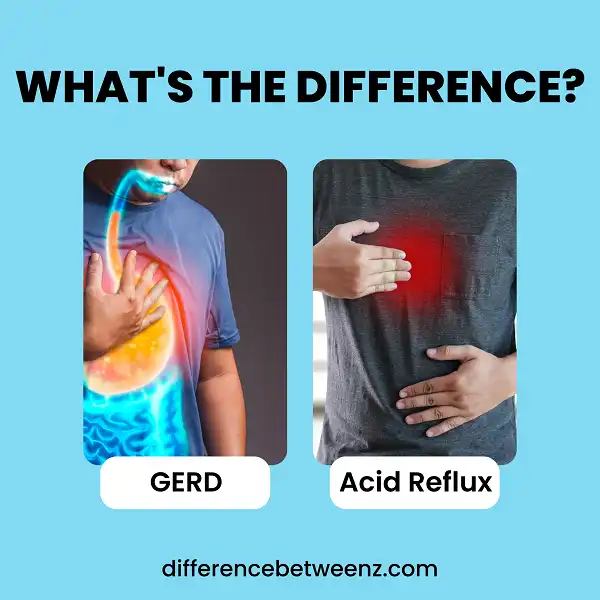There is a lot of confusion surrounding the terms “GERD” and “acid reflux.” Many people use them interchangeably, but they are actually two different conditions. In this blog post, we will discuss the difference between GERD and acid reflux, including the symptoms, causes, and treatment options. We hope this information will help you better understand these conditions and make decisions about your health care.
What is GERD?
GERD, or gastroesophageal reflux disease, is a chronic condition in which stomach contents flow back up into the esophagus. This can cause heartburn, chest pain, and other symptoms. GERD is often caused by a weak valve between the stomach and esophagus, which does not close properly. This allows stomach acids to flow back into the esophagus. GERD can also be caused by certain foods and drinks, such as coffee, tea, chocolate, and spicy foods.
GERD can be treated with lifestyle changes, such as avoiding triggers and eating smaller meals. Medications, such as antacids and proton pump inhibitors, can also help to relieve symptoms. In severe cases, surgery may be necessary to repair the valve between the stomach and esophagus. GERD is a common condition that affects millions of people worldwide. With proper treatment, most people with GERD can live normal, healthy lives.
What is Acid Reflux?
Acid reflux is a medical condition that occurs when stomach acid flows back up into the esophagus. The esophagus is the tube that carries food from the throat to the stomach. When this happens, it can cause heartburn, chest pain, and other symptoms. Acid reflux is more common in people who are overweight, pregnant or have a hiatal hernia. It is also more common in people who smoke, eat spicy foods, or drink alcohol. Treatment for acid reflux typically includes lifestyle changes, such as losing weight and quitting smoking. In some cases, medication may also be necessary. Acid reflux is a serious condition that should be treated by a doctor. Left untreated, it can lead to Barrett’s esophagus, which is a precancerous condition.
Difference between Gerd and Acid Reflux
Gerd and Acid Reflux are two terms often used interchangeably. However, there is a distinct difference between the two. Gerd, or gastroesophageal reflux disease, is a chronic condition in which stomach acid flows back up into the esophagus, causing irritation and inflammation. Acid reflux, on the other hand, is a more occasional occurrence in which stomach acid is temporarily pushed back up into the esophagus. While both Gerd and acid reflux can be uncomfortable, Gerd is typically more severe and can cause long-term damage to the esophagus if left untreated. If you think you may be suffering from either Gerd or acid reflux, it’s important to see a doctor for a diagnosis.
Conclusion
Gastroesophageal reflux disease, or GERD, and acid reflux are two different conditions. Although they have some similarities, there are key differences between the two that you should be aware of if you’re experiencing symptoms related to either condition. If you think you might have GERD or acid reflux, it’s important to consult with a healthcare professional who can help diagnose your condition and recommend the appropriate treatment. Thanks for reading!


